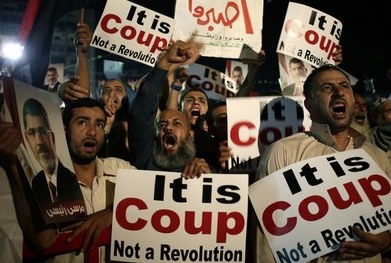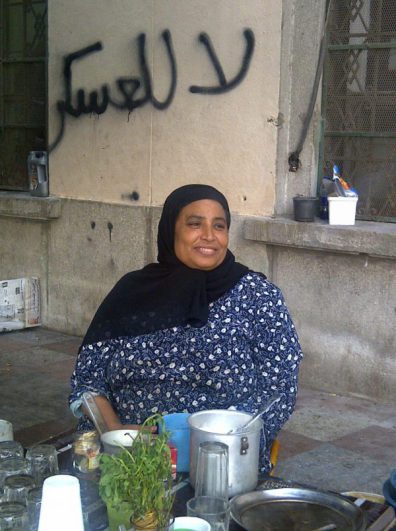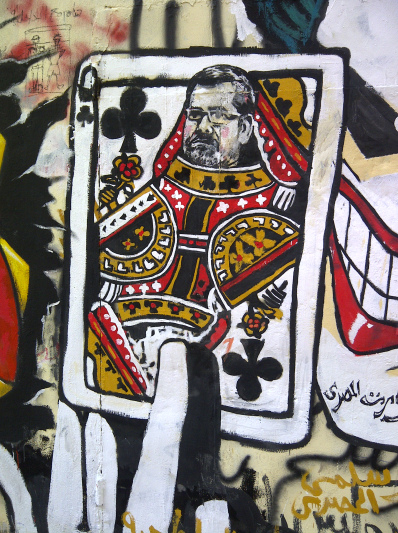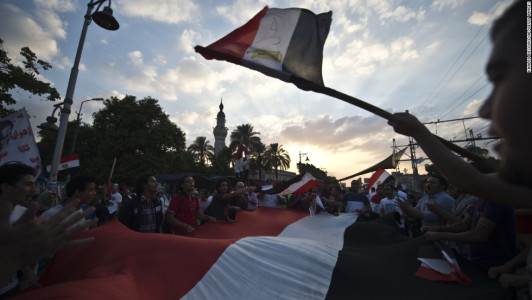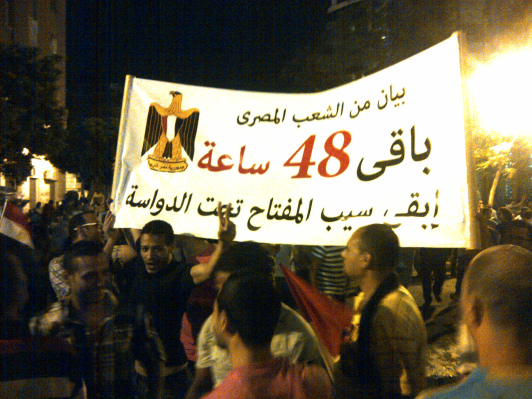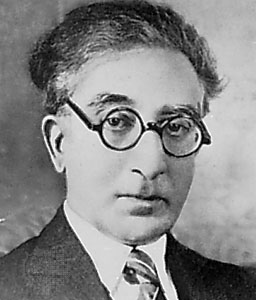An interview with Muslim of the PBS flagship Frontline program conducted on July 18, 2013, and published on September 17, 2013, to coincide with the broadcast of the documentary “Egypt in Crisis”. Khaled Fahmy is professor and chair of the American University in Cairo’s Department of History. A liberal supporter of the revolution, Fahmy worried about human-rights abuses under President Mohammed Morsi, and now a return to the military state under Gen. Sisi. This is the edited transcript of an interview conducted on July 18, 2013 in New York. Help me understand the context of the Muslim Brotherhood and how they…
Leave a CommentTag: Muslim Brotherhood
Published in Ahram Online on September 3, 2013 Western media misunderstood the Brotherhood and underestimated Egyptians’ desire for democracy and social justice One of the signs of the crisis that Egypt is currently going through is the gap between the vision of a large portion of Egyptians that revolted against Mohamed Morsi on 30 June and that of Western media coverage of Egyptian events. Despite the fact that this dissonance initially revolved around the term “coup,” I believe the core of the problem is not related to how the army’s move was characterised, as much as to how the Muslim…
1 CommentPublished in Ahram Online on July 15, 2013 Among the most complex lessons Egyptians have learned from the momentous events of the past two-and-a-half years is that they are a revolutionary people, writing their own destiny We were taught in schools that we were a patient and passive people, and for generations we accepted facile sayings about the genius of Egypt, its tranquil landscape, its gentle river and undemanding people. And yet here we are, proving to ourselves that we write our own history and that we can depose our rulers if they do not succumb to our will. This…
Leave a CommentPublished in Ahram Online on July 4, 2013 The revolution aimed to change the rules of the game, not just its players. When it was clear that Mohamed Morsi was picking up the mantle of Mubarak, he had to go I did not vote for Mohamed Morsi in the previous presidential elections. I invalidated my ballot in these elections because I realised that Egypt deserves better than either Morsi or Shafiq. Yet when the results were announced, I was glad because I realised that we had managed to carry out the first free and fair elections, and I considered Mohamed…
Leave a CommentPosted as an op-ed for the CNN on July 3, 2013 Two days before Hosni Mubarak was ousted as president of Egypt, I wrote an article for CNN calling for the Muslim Brotherhood to have a place in the post-Mubarak Egypt. Back then, I wrote: “As a secularist, I am not in favor of the Muslim Brotherhood coming to power in Egypt, and I remain deeply skeptical of its political program, believing that much of it is vague and impractical. But as an Egyptian hoping for freedom and justice for my country, I am deeply convinced that the Muslim Brotherhood has a place within…
Leave a CommentPosted on Facebook on July 1, 2013 One of the biggest casualties of yesterday’s events in Egypt is US Ambassador, Anne Patterson. For months now, she has been insisting on a slanted reading of the political scene in Egypt, constantly letting the Muslim Brotherhood off the hook (in a bizarre move last week, she even visited Khayrat El-Shater, the strong man of the MB in his personal office), and giving erroneous accounts to John Kerry about the opposition to President Morsy. The biggest casualty, however, has to be Morsy and his Muslim Brotherhood, who have insisted on a disastrous reading…
Leave a CommentPosted on Facebook on July 1, 2013 Immediately after the Egyptian army issued its 48-hour ultimatum to political actors to set down their differences or else the army would initiate its own roadmap, in a thinly disguised threat to Morsi to step down, people started making comparisons with the Algerian army which, back in 1991, stepped in and annulled the results of the parliamentary elections thus preventing the Islamists (FIS) from reaping the results of their electoral victory. Egypt according to this comparison is about to enter in a cycle of violence due to the Muslim Brotherhood’s feeling it has…
Leave a CommentPublished in Ahram Online on June 23, 2013 Culture ministers should promote freedom of thought, speech and academic research, not censorship, closure and ignorance. But then in Egypt, avarice and ineptitude reigns from the top One is at a loss as to how to make sense of the most recent policies of the president, the government, and the Muslim Brotherhood. In the latest gubernatorial reshuffle, I can understand that President Morsi would prefer to adopt the policies of the toppled president in designating border governorates to officials from the police and the army, given that the Brotherhood’s constitution had failed…
Leave a CommentPosted on Facebook on June 16, 2013. Well, we’re nearly there, Hermippos. Day after tomorrow, it seems—that’s what the captain said. At least we’re sailing our seas, the waters of Cyprus, Syria, and Egypt, the beloved waters of our home countries. Why so silent? Ask your heart: didn’t you too feel happier the farther we got from Greece? What’s the point of fooling ourselves? That would hardly be properly Greek. It’s time we admitted the truth: we are Greeks also—what else are we?— but with Asiatic affections and feelings, affections and feelings sometimes alien to Hellenism. It isn’t right, Hermippos,…
Leave a CommentPublished in Ahram Online on June 8, 2013 The battle between Islamists and secular intellectuals over the cultural domain comes down to posts and a false struggle around identity, whereas the real culture crisis goes unremarked Since the new minister of culture, Alaa Abdel-Aziz, took up his post, conversations about the attitude he has adopted to prove himself have not ceased within Egypt’s cultural scene. The minister commenced his work in the ministry with a series of decisions to sack leading ministry figures, starting from the head of the General Egyptian Book Organisation, and then the head of the Fine…
Leave a Comment